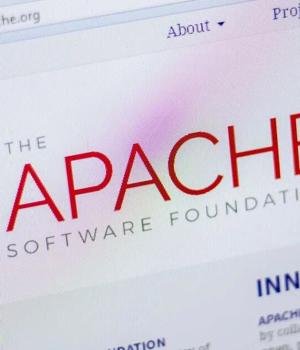Security News > 2021 > December > Apache’s other product: Critical bugs in ‘httpd’ web server, patch now!

With more than 3000 files totalling close to a million line of source code, Apache httpd is a large and capable server, with myriad combinations of modules and options making it both powerful and dangerous at the time.
Apache just published an httpd update that fixes two CVE-numbered security bugs.
If you are using these modules, whether you realise it or not, you could be at risk of server crashes, data leakage, or even remote code execution.
CVE-2021-44790: Possible buffer overflow when parsing multipart content in mod lua of Apache HTTP Server 2.4.51 CVE-2021-44224: Possible NULL dereference or SSRF in forward proxy configurations in Apache HTTP Server 2.4.51 and earlier.
Dealing with CVE-2021-44224 involved numerous code changes, the most obvious being a correction in a file of utility code used by the httpd proxy module.
C alone, which is support code for just one of many httpd modules, is testament to the overall size and complexity of the Apache HTTP Server.
News URL
Related news
- Critical vulnerabilities in TeamCity JetBrains fixed, release of technical details imminent, patch quickly! (CVE-2024-27198, CVE-2024-27199) (source)
- Exploit available for new critical TeamCity auth bypass bug, patch now (source)
- Critical JetBrains TeamCity On-Premises Flaws Could Lead to Server Takeovers (source)
- Web-based PLC malware: A new potential threat to critical infrastructure (source)
- March 2024 Patch Tuesday: Microsoft fixes critical bugs in Windows Hyper-V (source)
- New HTTP/2 Vulnerability Exposes Web Servers to DoS Attacks (source)
- New HTTP/2 DoS attack can crash web servers with a single connection (source)
- A critical vulnerability in Delinea Secret Server allows auth bypass, admin access (source)
Related Vulnerability
| DATE | CVE | VULNERABILITY TITLE | RISK |
|---|---|---|---|
| 2021-12-20 | CVE-2021-44790 | Out-of-bounds Write vulnerability in multiple products A carefully crafted request body can cause a buffer overflow in the mod_lua multipart parser (r:parsebody() called from Lua scripts). | 9.8 |
| 2021-12-20 | CVE-2021-44224 | NULL Pointer Dereference vulnerability in multiple products A crafted URI sent to httpd configured as a forward proxy (ProxyRequests on) can cause a crash (NULL pointer dereference) or, for configurations mixing forward and reverse proxy declarations, can allow for requests to be directed to a declared Unix Domain Socket endpoint (Server Side Request Forgery). | 8.2 |